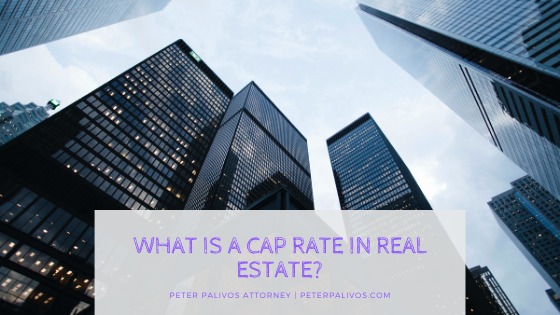What Is A Cap Rate In Real Estate?

At its core, the cap rate is the ratio of a commercial property’s annual net operating income to its buying price. The cap rate allows one to evaluate commercial properties in varying asset classes, sizes, unit mixes, rentable square feet, or ages on the same terms. Capitalization rate isn’t used in residential real estate because homes are values based on similar nearby comparable properties that have recently sold. Commercial real estate’s value is based on the income it produces, which is why the cap rate is so commonly used.
If you’re looking to find out what your commercial properties capitalization rate is, it’s actually rather simple. The first thing you need is the net operating income. This is your property’s annual gross income minus annual expenses and doesn’t include any debt that may be held for the property, such as a mortgage. From here, you divide the net operating income by the asking price or the current market value of the property. So let’s say your property has a gross income of $500,000 with expenses of $200,000. This would make its net operating income $300,000. If your property was then listed for sale at $4,000,000, the cap rate would be 7.5% (cap rate is typically shown as a percentage).
So why would you need to know what your cap rate is? Well, having the cap rate allows you to compare commercial real estate properties separately from the purchase price. This helps you figure out which would offer a higher return on investment, regardless of how much it may cost. When you have a high cap rate, it also allows for a higher potential return and buyers are able to compare two investments based on their capitalization rate in order to figure out which one is worth delving deeper into.
Cap rate is typically used when a commercial real estate property is being bought or sold, but it can also be used to identify an average sale value for the market at any given time. The average cap rate will vary based on different circumstances, such as property class, geographic area, asset class and location (such as suburban or rural). These average cap rates assist buyers and sellers in gauging the pricing of the overall market as well as figuring out the average valuation of their property.
This article was originally published on PeterPalivos.comArticles from Peter Palivos Attorney
View blog
Being a philanthropist is often of the fantasy of most would-be billionaires. It conjures up images ...

Are you interested in making some big changes to your home? One of the best do-it-yourself projects ...

A military veteran is defined as a person who has formerly served in a branch of the military but wh ...
You may be interested in these jobs
-
LPN - Emergency - Per Diem
Found in: Lensa US P 2 C2 - 6 days ago
Beth Israel Lahey Health Beverly, United States**When you join the growing BILH team, you're not just taking a job, you're making a difference in people's lives.** · **Job Type:** · Per Diem · **Scheduled Hours:** · 0 · **Work Shift:** · Day (United States of America) · **Job Description:** · Beverly Hospital promotes the cul ...
-
Data Analyst
Found in: Betterteam US S2 T2 - 2 weeks ago
Louisiana Primary Care Association Baton Rouge, United States Full timePosition Title: Data Analyst (Fulltime Exempt) Supervisor: Director of Health Information Technology Position Summary: Manage and coordinate performance data collection, feedback, and reporting for all quality initiatives; Engage members through relevant data reports and compari ...
-
Oral Surgeon or Dentist
Found in: Jooble US O C2 - 6 days ago
Sunnybrook Dentistry & Braces - a Benevis company Moss Point, MS, United StatesA Leader in Compassionate Dental Care · At Benevis, we're more than just a dental services provider. We're a team dedicated to making quality dental care accessible and affordable for all. We are actively seeking an Oral Surgeon or General Dentist with extensive oral surgery exp ...


Comments